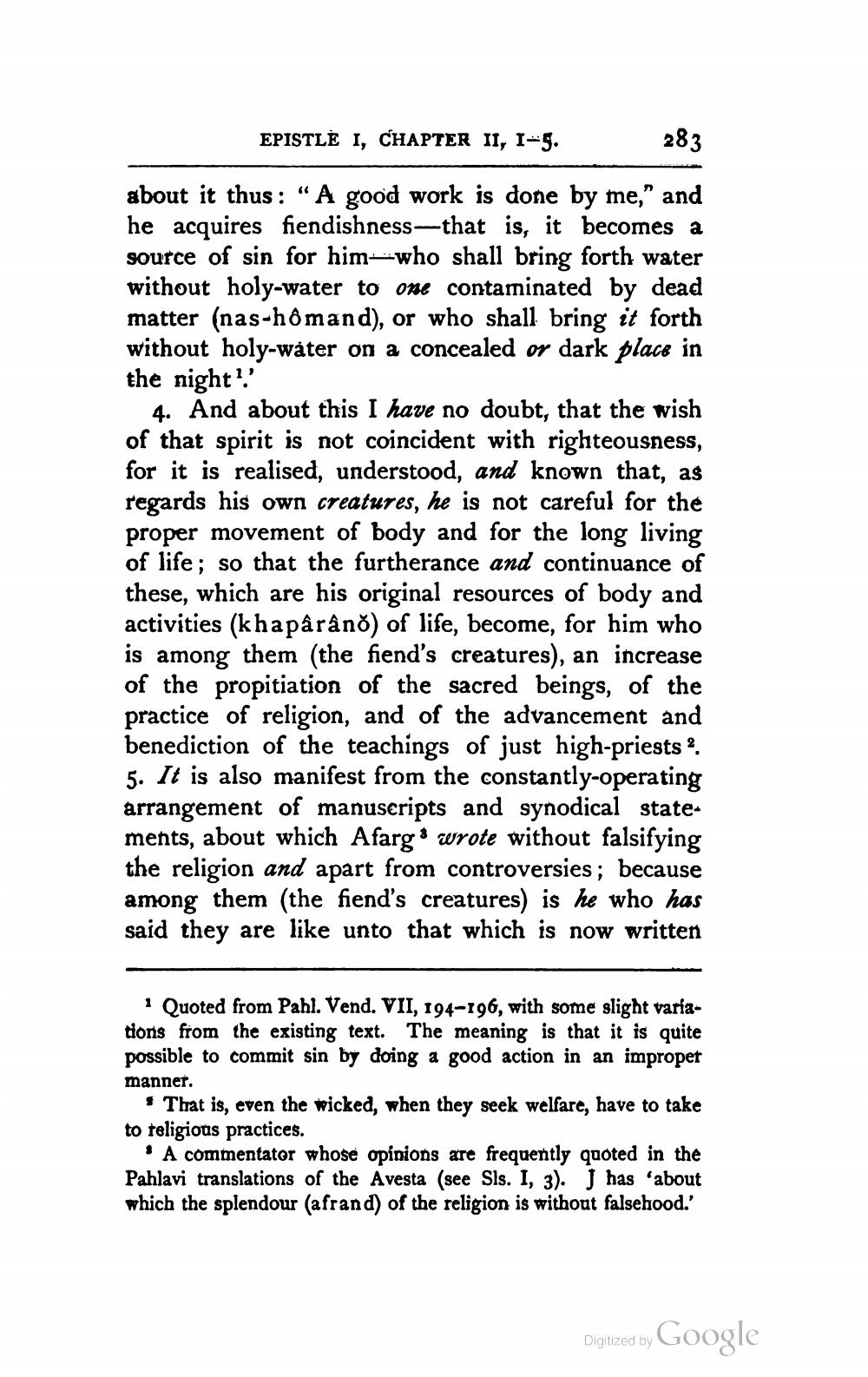________________
EPISTLÈ I, CHAPTER II, 1-5.
283
about it thus: “A good work is done by me," and he acquires fiendishness-that is, it becomes a source of sin for him--who shall bring forth water without holy-water to one contaminated by dead matter (nas-hômand), or who shall bring it forth without holy-water on a concealed or dark place in the night.'
4. And about this I have no doubt, that the wish of that spirit is not coincident with righteousness, for it is realised, understood, and known that, as regards his own creatures, he is not careful for the proper movement of body and for the long living of life; so that the furtherance and continuance of these, which are his original resources of body and activities (khapârânð) of life, become, for him who is among them (the fiend's creatures), an increase of the propitiation of the sacred beings, of the practice of religion, and of the advancement and benediction of the teachings of just high-priests 2. 5. It is also manifest from the constantly-operating arrangement of manuscripts and synodical statements, about which Afarg & wrote without falsifying the religion and apart from controversies; because among them (the fiend's creatures) is he who has said they are like unto that which is now written
· Quoted from Pahl. Vend. VII, 194-196, with some slight variations from the existing text. The meaning is that it is quite possible to commit sin by doing a good action in an impropet manner.
That is, even the wicked, when they seek welfare, have to take to religious practices.
• A commentator whose opinions are frequently quoted in the Pahlavi translations of the Avesta (see Sls. I, 3). J has 'about which the splendour (afrand) of the religion is without falsehood.'
Digitized by Google




